Theme: Consecrated Women Religious in Africa: Creating a Global Impact on Sustainable Development
Message from the Center Director

Sr. Dr. Candida Mukundi (ASN),
Director, CERRA-Africa
The Centre for Research in Religious Life and Apostolate (CERRA-AFRICA); a collaboration of the Association of Sisterhoods of Kenya (AOSK), The Catholic University of Eastern Africa (CUEA) and Tangaza University (TU), is glad to invite you to a Symposium focusing on Consecrated Women Religious in Africa as participants in creating a global impact on sustainable development, through a variety of ministries. The Ministries include but are not limited to education, pastoral care, healthcare care, religious formation, care for the elderly and other social services. The Symposium will provide a platform for sharing research findings, personal narratives and collaborative insights into Women Religious diverse roles.
This spiritual, intellectual and social endeavor will not only affirm the ongoing ministries of Women Religious in Africa, but also bring out successes, learnings, challenges and gaps that may lead to subsequent practical interventions. It will also draw like-minded partners and collaborators, for social advancement and evangelization in the Church and society. We look forward to fruitful discussions leading to further exploration and action for the benefit of our Common Mission.
Call For Papers

We invite submissions that rigorously examine the multi-faceted roles of Sisters and their transformative contributions to society. Papers should reflect lived experiences, highlight the often “silent presence” of Consecrated Women Religious, and explore the broader implications of their ministries in evangelization, healing, education, and social justice. This symposium endeavours to foster a deeper understanding and appreciation of the relentless efforts of consecrated women religious, ensuring their stories are documented and their legacies honoured. Contributions that shed light on their invaluable, yet often overlooked, contributions to sustainable development are highly encouraged. Join us in this intellectual and spiritual endeavour to recognize and celebrate the enduring impact of consecrated women religious in Africa and beyond.
See the attached Call for Papers
Abstract Submissions
The abstract should include:
All abstracts should be submitted in Microsoft Word / PDF format. The abstract should not exceed 500 words, single-spaced, in Times New Roman, 12-point font. It MUST be the original work of the authors.
All submissions should sent via this online platform. In case of any challenges please communicate to us via [email protected]
The presence and impactful contributions of Catholic Sisters and consecrated women religious across Africa and worldwide in different apostolates and prayer activities akin to Mary, the Mother of Jesus and other women in the gospel, are evident through the vast number of religious congregations established in Africa. The upcoming symposium organized by the CERRA-Africa Data Centre will delve into how the charismatic activities of Sisters influence the Church and society at large, attracting attendees from Africa and abroad to discuss the research findings and objectives. The term “consecrated women religious” is used to define women who have chosen a religious lifestyle over a secular one, dedicating their lives to God, as Hoffman’s (2011) work portrays. This symposium embraces collaborative efforts of Sisters on local and international levels, aiming to showcase their profound impact through diverse roles, underlining the significance of their work on a global scale.
The fundamental objective of this symposium is to unite attendees in a reflective contemplation of the written or witnessed works of sisters, as presented in the diverse services rendered to the Church and society. The existence of consecrated life in the world predates the Church. Historiography indicates that Roman Catholic missionaries to Africa consisted of both men and women who fulfilled complementary functions in the evangelization of God’s people.
Nevertheless, notwithstanding the extensive presence of consecrated women in the Catholic Church in Africa, there is a dearth of documented information regarding them. Regarding the works and the presence of sisters in Africa, much rhetoric exists. The purpose of this symposium is to facilitate the dissemination of the research conducted by consecrated women religious sisters in Africa and beyond. To achieve this, the CERRA-Africa Data Centre will offer sisters, stakeholders, benefactors, and other mission collaborators an opportunity to reflect on the lives and works of these women. Writers should base their reflections on their encounters with the sisters in the mission, whether it be in educational institutions, the social sector, or any other setting where they have worked together. Numerous individuals have been affected by the remarkably subdued presence of sisters in the world.
The term “silent presence” refers to cloistered Catholic nuns, whose interactions with the outside world are considerably more restricted in comparison to the “active” women religious. Sisters, whether as congregations or individuals engaged in evangelization, do the following: in their healing ministry, they restore hope to the sick; as educators, they impart practical knowledge that transcends academic boundaries; and in their social ministry, they collaborate with the Church and society to confront pervasive societal issues that threaten humanity. To provide direction for this introspection, four thematic areas have been delineated: education, sister ministries, care for the elderly, and formation.
Education
Education, as a fundamental element for human survival, has been a focal point for the Conrad Hilton Foundation through the African Sisters Education Collaboration (ASEC) programs since 2007, providing education to over 6,000 Consecrated Women Religious. The symposium aims to explore the intersection between education and poverty alleviation in society, recognizing education as an indispensable tool not only for personal and spiritual growth but also for community development. Through formal education and professional training, Sisters enhance critical skills and broaden their horizons, ultimately contributing to social, economic, and political development. The significance of education in advancing both individuals and communities, particularly the pivotal role of education in overcoming gender discrimination and fostering gender equality, is a key theme in this symposium, emphasizing the transformative impact of Sisters’ education on society’s progress and well-being, as cited by Galguera (2015), UNESCO (2015), Roehlkepartain, Patel (2006), and Fredriksen, Kagia (2013).
Formation
John Paul II states that “Formation then is a sharing in the work of the Father who, through the Spirit fashions the inner attitudes of the Son in the hearts of young men and women”
(July, 1986). According to Umeozor (2018), formation is a procedure in which individuals are supported by a knowledgeable mentor to be receptive to divine invitations, to discover their true selves, and to develop holistically as individuals who internalise the teachings and values of Jesus Christ and fulfil His mission within the Church by the requirements of the religious institute’s founding patrimony. Aspiration for religious formation evolves into a lifelong commitment to continuous formation. It consists of the following five areas of emphasis: human, intellectual, doctrinal, social, and spiritual aspects of existence.
Fundamentally, religious formation introduces an individual to the knowledge of God, which in turn strengthens their yearning for a more profound and intimate connection with Him. Religious life endeavours to shape individuals in their interpersonal relationships. In addition, religious formation conforms to societal and Church- approved moral standards. Religious formation also encompasses spiritual formation, which assists individuals in becoming more profoundly acquainted with God via spiritual exercises, reading, prayer, and the sacraments. In conclusion, formation is concerned with the development and growth of the human being, taking into consideration mental, behavioural, and personal integration. The experience that individuals in formation acquire equips them with the wisdom and self-assurance necessary to confront the unavoidable demands and obstacles of the global community and society at large. Religious formation encompasses significant domains that require contemplation and investigation. The Church’s role in religious formation, Church growth in light of religious formation, the content of religious formation and global development, religious formation and interpersonal relationships, and the relevance of religious formation to the mission of the Church are a few of these topics.
Care for the elderly
The issue of ageing members is a pressing concern in Africa and globally, impacting both secular institutions and religious congregations, including a significant number of elderly individuals or those on the cusp of ageing. Legislative measures, such as those seen in South Africa with the establishment of safeguards for the rights of older persons in 2006, and Kenya’s development of the Healthy Ageing and Older Persons’ Health Strategy 2022–2026, aim to provide social security and community-based care for the elderly. However, challenges persist, with issues of isolation, financial constraints, and lack of support systems affecting the elderly’s access to essential resources and care. Despite efforts such as pension and social protection programmes, gaps in effectiveness arise due to inadequate coordination, financial resources, and government structure, leading to reliance on reserves within religious congregations to address the issue of caring for the elderly.
A study conducted by the CERRA-Africa Data Centre reveals the disparity in age distribution within congregations, as elderly members outnumber younger ones, raising concerns about sustainability and caregiving. The challenges faced by cloistered nuns in providing for elderly community members underscore financial constraints and inadequate resources for medical needs and accommodation. The study highlights the strains faced by these nuns, given their reliance on external contributions for sustenance due to limited income-generating activities, posing additional hurdles in caring for the elderly and ensuring their well-being amidst financial and resource constraints within the religious communities.
Plenary Sessions
These sessions shall serve as a forum for experts to engage in high-level dialogues concerning emerging issues, contribute to the body of knowledge, and ruminate on personal experiences in relation to the symposium’s themes. Moderators shall ensure that pertinent emergent issues are afforded the opportunity to be highlighted by experts debating various themes.
Breakout Sessions
Participants shall have the opportunity to delve more deeply into emerging issues during breakout sessions and presentations. It will be an opportunity for individuals to inquire, express their opinions, and offer recommendations regarding impending obstacles. The selection of these sessions shall be based on the expertise and areas of interest of the participants in order to elicit symposium outcomes.
Subthemes
Sisters’ Empowerment & Education
- Sisters’ empowerment education enhancement
- Professional development for the sisters
- Artificial intelligence – contemporary reality (integration of technology)
- Recruitment, Vocation Promotion, & Formation
- Training of formatters
- Initial & ongoing formation
- Formation policies and guidelines
- Care for the Elderly: Retirement Planning, Financial Policies, Insurance & Old Age Diseases
- Common sicknesses among sisters and their management
- Retirement plans
- Psycho-social support for elderly sisters
- Physical well-being
- Aging gracefully
- Sisters’ Ministry
- Social work & pastoral work
- Governance, finance management, asset management & human resource management
- Collaborative ministries
Attached is the Concept paper and Call for Papers for the symposium.
Sponsors and Exhibitors
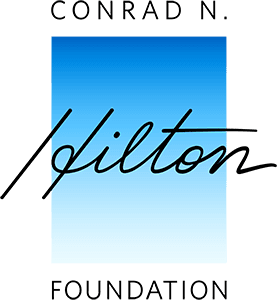

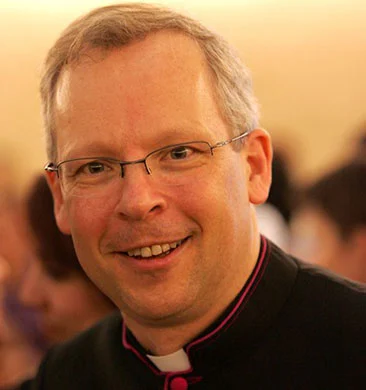
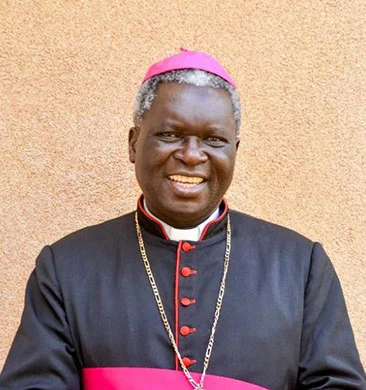
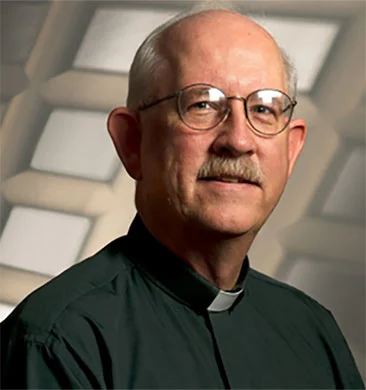
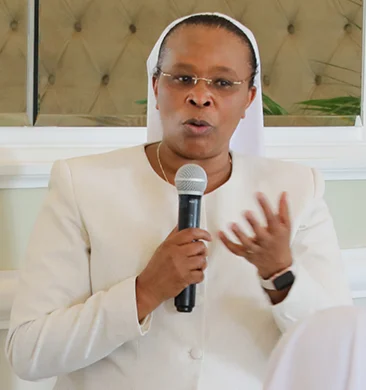
 Sisters’ Empowerment & Education
Sisters’ Empowerment & Education